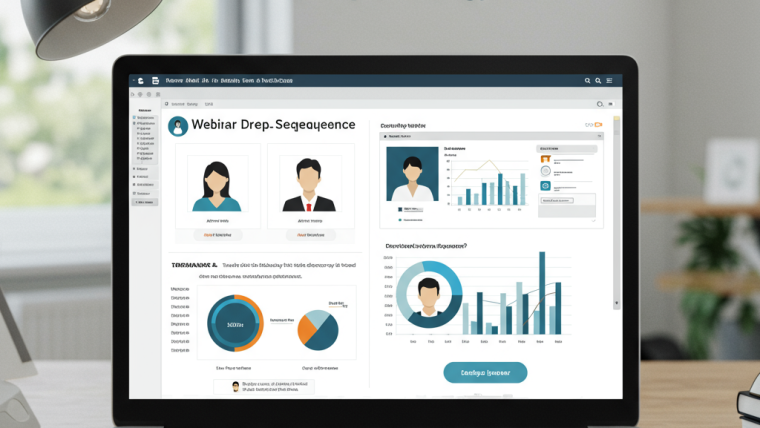In the digital communication landscape, webinars have become an essential tool for businesses, educators, and thought leaders. As virtual events continue to dominate professional interactions, many content creators find themselves wondering about proper formatting conventions. One common question that arises is whether “webinar” should be capitalized in various contexts. Let’s explore this grammatical consideration thoroughly to ensure your professional communications always maintain proper form.
Understanding the Word “Webinar”
The Origin and Definition
The term “webinar” originated as a portmanteau of “web” and “seminar,” first appearing in the late 1990s as online technology began enabling remote learning and virtual presentations. According to linguistic experts, it represents a perfect example of how language evolves to accommodate technological advancements.
A webinar is defined as an interactive online seminar, workshop, lecture, or presentation transmitted over the internet. These virtual events allow participants to engage in discussions, view presentations, and interact with hosts from anywhere in the world. With the widespread adoption of remote work and digital communication, the term has become firmly established in our professional lexicon.
Common Usage Patterns
As with many technological terms that enter our language, “webinar” has followed a predictable linguistic evolution path. Initially, new technology terms are often capitalized or written with special formatting to indicate their novelty. Over time, as they become more commonplace, they transition to lowercase forms. This pattern has occurred with words like “Internet” (now commonly “internet”), “E-mail” (now “email”), and “Web site” (now “website”).
For “webinar,” its journey has been similar, though perhaps accelerated by the rapid adoption of virtual events during recent years. Let’s examine specific rules for when to capitalize this term.
General Capitalization Rules for “Webinar”
Standard Sentence Structure
In general sentence structure, “webinar” should not be capitalized unless it appears at the beginning of a sentence or in a title. For example:
- The webinar begins at 2:00 PM Eastern Time.
- Webinar attendance has increased dramatically in the past year.
The word has been fully incorporated into everyday language and is treated as a common noun like “meeting,” “conference,” or “seminar.” Following standard English conventions, common nouns are not capitalized in the middle of sentences.
In Titles and Headings
When “webinar” appears in titles, headings, or subheadings, capitalization rules depend on the style guide you’re following. In title case formatting (common in American English publications), you would capitalize “Webinar”:
- Best Practices for Hosting a Successful Webinar
- How Our Webinar Series Transformed Customer Engagement
In sentence case formatting (often used in British English and some digital platforms), only the first word and proper nouns are capitalized:
- Best practices for hosting a successful webinar
- How our webinar series transformed customer engagement
For consistency in your content, choose one style and apply it throughout your materials, which is especially important for brand style guides that establish your organization’s voice.
Special Considerations for “Webinar” Capitalization
In Product and Service Names
When “webinar” is part of a specific product, service, or series name, it should be capitalized as part of that proper noun:
- The Leadership Development Webinar Series begins next month.
- Register now for our Annual Marketing Strategy Webinar.
- The Webinar Pro platform allows for seamless integration with your CRM.
In these instances, capitalization signals to readers that you’re referring to a specific named entity rather than the general concept of a webinar.
In Marketing Materials and Event Promotion
Content creators often face decisions about capitalization when creating promotional materials. While standard grammar rules suggest lowercase usage, some marketers intentionally capitalize “Webinar” to draw attention to it as a key offering:
- Join our exclusive Webinar to learn industry secrets!
- This Webinar provides certification preparation.
Though this approach deviates from standard conventions, it represents a stylistic choice some organizations make for emphasis. For professional credibility, however, following standard capitalization rules is generally recommended unless there’s a compelling strategic reason to do otherwise.
Industry-Specific Practices
Different industries have developed unique conventions around webinar capitalization. In academic and educational settings, adherence to formal style guides typically means using lowercase “webinar” except in titles. Technology companies often capitalize “Webinar” when referring to their specific offering as a product feature but use lowercase when discussing the concept generally.
At <a href=”https://livecasthub.com”>LiveCast Hub</a>, we’ve observed these varying conventions across industries and recommend consistency within your own content ecosystem regardless of which approach you choose.
The Evolution of Digital Communication Terminology
The question of whether to capitalize “webinar” reflects a broader linguistic phenomenon related to technological terms. New technology typically enters language following a predictable pattern:
- Initial phase: Terms appear in quotes, are capitalized, or formatted distinctively (“Webinar” or “web-inar”)
- Transition phase: Inconsistent capitalization and formatting as usage becomes more widespread
- Established phase: Standardized lowercase treatment once the term is fully assimilated
“Webinar” has largely reached the established phase, joining terms like “email,” “internet,” and “smartphone” that were once capitalized but now appear in lowercase as standard practice. Understanding this evolution helps content creators adapt as language continues to change.
Best Practices for Professional Content Creators
For those creating content related to webinars, here are practical recommendations :
Unless “webinar” is part of a proper name, title, or appears at the beginning of a sentence, use the lowercase form in general writing. Maintain consistency throughout your content—don’t alternate between “webinar” and “Webinar” when referring to the same concept. When creating style guides for your organization, explicitly address digital terminology capitalization.
Remember that clarity in communication outweighs rigid adherence to any particular rule. If your audience clearly understands your meaning, you’ve succeeded regardless of capitalization choices.
Conclusion
The question of whether “webinar” should be capitalized has a straightforward answer in most contexts: no, it should not be capitalized unless it appears at the beginning of a sentence or as part of a title or proper name. As a fully assimilated term in our professional vocabulary, it follows standard capitalization rules for common nouns.
By understanding these conventions, content creators can ensure their communications maintain professional quality while properly reflecting current linguistic standards. As virtual events continue to shape how we connect professionally, maintaining grammatical precision in discussing them contributes to clearer, more effective communication overall.








Webinar Analytics: A Complete Guide to Measuring Success and Improving Performance
The Ultimate Webinar Follow-Up Strategy to Turn Attendees into Customers
Webinar Accessibility Best Practices: How to Make Your Online Events Inclusive for All
Webinar Personalization: Tailoring Content to Audience Segments for Maximum Engagement